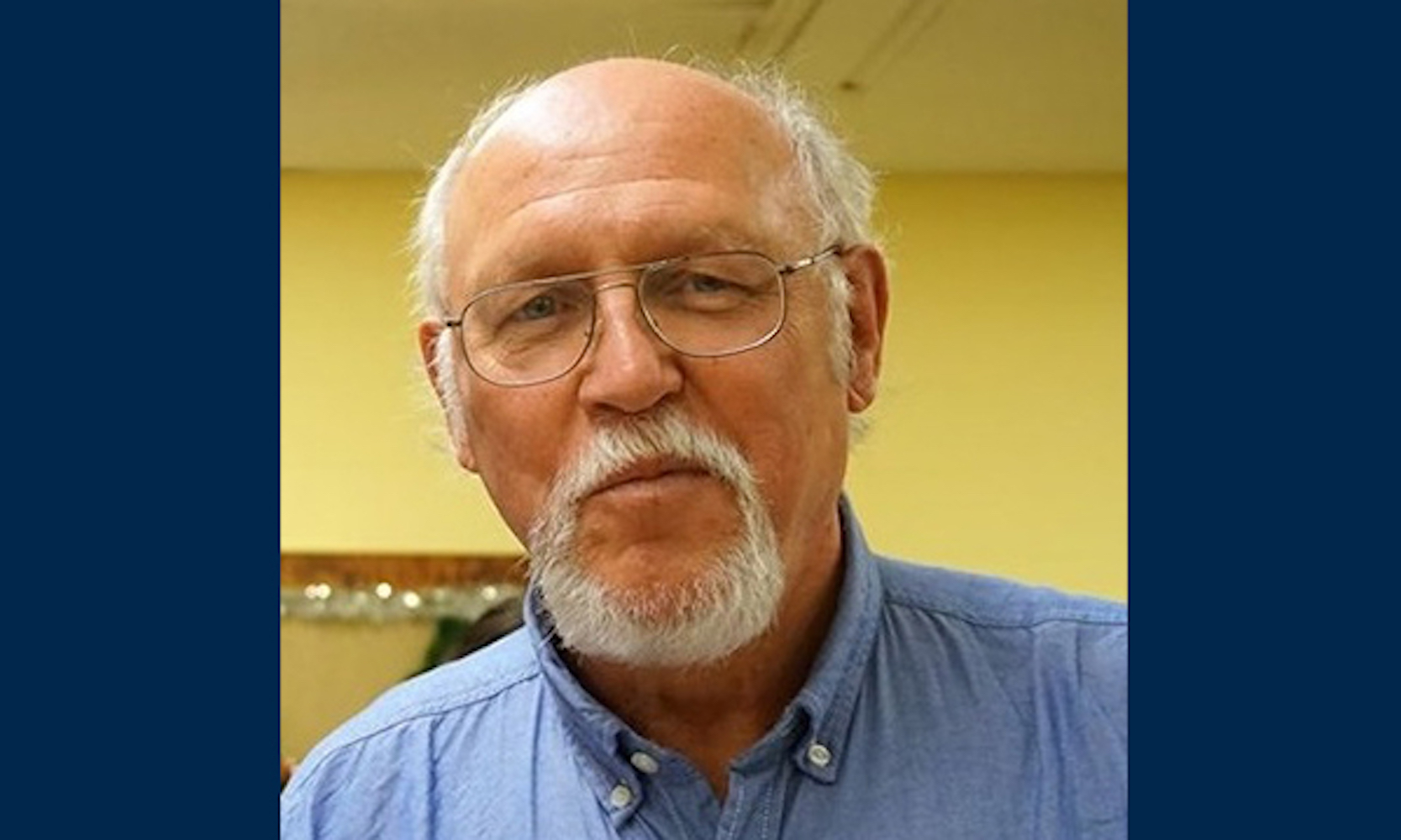
Students studying advanced German recently met to talk about their professor Klaus Tappe before class. Words overheard include authentic, chill, deliberate, current and passionate.
The five undergraduates — Owen Ekblad, Garrett Goshorn, Brian Silvi, Ellie White and David Wido — speak of Herr Tappe (that’s how they’d greet him in class) in the present. They know Tappe, a department of Language, Culture and Communications lecturer, died unexpectedly Nov. 4 at age 64. But the reality of the situation hasn’t fully registered yet.
They saw him just the week before. And the weekend prior to his passing, he emailed them on a Saturday to send links to German articles they may find interesting with a prompt to bring thoughts to class. “He wants to make sure we always have what we need,” White says.
But he didn’t just want to prepare them for class; it was about giving them world cultural contexts to use in life too. Tappe — who lived his first 25 years in Germany, earned his undergraduate degree at the University of Göttingen and still has family in the European country — provided an insider’s insight.
White, a senior, gives an example: She spent her past summer in Austria tutoring refugees and sex trafficking victims to learn German and English languages. Upon returning to the states, White asked Tappe questions about the refugee crisis. Tappe, realizing that his students may not have a comprehensive understanding of Germany’s refugee situation, dedicated a following class to the topic.
He spoke about the people who were trying to immigrate and shared information about the difficult circumstances they were fleeing from, like the Syrian War. Tappe talked about a growing right-wing movement in Germany to keep refugees out because of the concern on how the population could affect German resources, culture, safety and more. And he shared that some refugees assimilate to their new land and live peacefully with longtime German citizens, mentioning the mass-Turkish migration in the 1960s and how those families are now a hybrid of German and Turkish culture.
“He's very fair and balanced in how he presents information. He gives points of view from all different sides of the situation, but never his own,” Ekblad says. “He wants us to be informed on the political situation — he closely followed politics — but when he would talk about something, he’d always make sure to bring up the counter point. He wants us to have an understanding that we could bring with us to Germany someday.”
Colleague German Professor Jackie Vansant says she knew which of her students previously had Tappe as an educator — they had their finger on the pulse of what was happening in Germany today.
She says one of her students — Engineering major Julian Aytes, who’s had internships with places like Robert Bosch translating technical procedures from German to English — had a project where he needed to plan a trip to a German city for a group of engineers. Knowing about the popular German detective series Tatort from Tappe’s class, Aytes used sights shown in the location where it was filmed to create an itinerary.
Vansant also says Tappe — who spoke four languages — wanted his students to know the importance of learning another language. “Klaus tied the culture with the language, and made students aware of the professional opportunities knowing the language and culture would provide.”
Sitting in the classroom with Tappe’s students, they agreed. Everyone is going into a different field — majors include finance, physics and linguistics — and each says Tappe worked with them individually to show how familiarity with the German language and culture would help move them forward on their career paths.
Silvi, a senior who first met Tappe during his freshman year, says he’s glad he had the chance to learn from someone he considers one of the best professors on campus.
“He’s a library of experience. He’s authentic. And, when learning German, he’s the perfect guy to teach it.”
Ruhe in Frieden, Herr Tappe.





